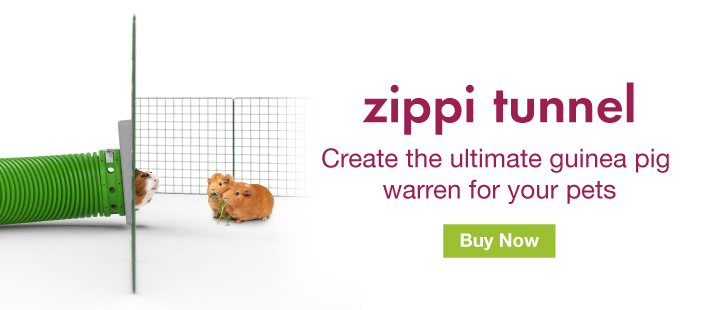Recent advances in guinea pig health care mean your pets are more likely than ever to survive an operation. However, it’s not a nice experience for anyone, and there are some steps you should take to ensure that your guinea pig recovers as quickly as possible.
It's likely that your vet or their assistant will have given you some advice on how to take care of your pet post-operation, and it’s really important you follow this to the letter. If they’ve not given you much advice, then read on for ten helpful tips for dealing with poorly guinea pigs.

Helping guinea pigs to a speedy recovery
10 Top Tips For Dealing With Poorly Guinea Pigs
- Ask your vet for painkillers and antiseptics. After your guinea pig has had their operation they’re likely to be in a lot of pain, and so will need something to ease it. Very much like after you come back from the hospital or the dentist, you’ll be very sore and tired, so your vet will be able to give you sound advice on how to help your guinea pig have a comfortable and speedy recovery. Antiseptics may be required after operations such as neutering, where abscesses can form if the area isn’t kept clean. Ask your vet which one to use, or purchase one from their clinic.
- Keep your guinea pigs together unless your vet has explicitly said otherwise. Guinea pigs are herd animals and do not like being kept on their own, and after such a stressful time they’ll need their family around them to keep their spirits up. Without their cagemates, some poor pets get depressed and a few simply give up. To avoid this, keep at least one other guinea pig in with them, such as a neutered member of the opposite sex, a sister, or a member of the same sex. If you have three guinea pigs, it’s a good idea to put them all in together so that you can ensure none are on their own.
- Make sure that your guinea pig is eating, even if this means hand-feeding them. If they’re shocked or in pain they’re less likely to eat, which really won’t help their recovery. If they shouldn’t be picked up, enter their run or put an arm in to tempt them with their favourite tidbits. As normal, ensure they have constant access to hay and fresh water.
- Many owners recommend giving your guinea pigs extra vitamin C to make sure that their immune system is working as well as it can be. Don’t worry about overdosing your guinea pigs with this, as any extra they will just urinate out. Either give them foods rich in vitamin C, or add a soluble vitamin C tablet to their water.
- Keep a close eye on your pet to make sure it's recovering properly, particularly if it's had an operation. If a cut has been made in your guinea pig then it can get infected and may reopen. If it swells a lot, becomes hard, seeps pus, or you can see stitches that are supposed to be internal, then get in contact with your vet. If your pet appears to be in pain, contact your vet too, as they will probably be able to give your guinea pig some painkillers.
- It’s a good idea to weigh your poorly guinea pig a few times a day to make sure that it’s not losing weight. It may hurt your guinea pig to be picked up, so you might want to get a box, encourage your guinea pig into the box, block the exit, then weigh the box with the guinea pig in it. Alternatively, you can have one side of the box cut out so that you can slide your guinea pig very gently from the floor of the box straight out the side onto the scales.
- You might want to keep your guinea pigs on white towels for the first few days after their operation. This means that you can see if they’re bleeding, or not pooing or weeing. It might be the case that your guinea pig is eating it’s own faeces which is why you can’t see any droppings. Don’t worry if this happens - guinea pigs often need to re-ingest this material to get the most nutrients out of it as possible. If you can’t see any droppings, watch your pet for a while to see what it’s doing.
- Make sure their hutch or temporary enclosure is really clean to help avoid infections and illnesses.
- Make sure your guinea pigs are in a safe, quiet, warm environment. This may mean keeping them all indoors for a few days, especially if it’s the winter. Find a nice quiet spot for them in your house away from lots of noise and other pets.
- It’s not a good idea to handle your pet unnecessarily. If it’s just had an operation it will be sore and probably in pain if you try to pick it up, especially if they’ve had a stomach operation, as the usual picking up method puts a lot of strain on this area.






Comments
There are no comments just yet